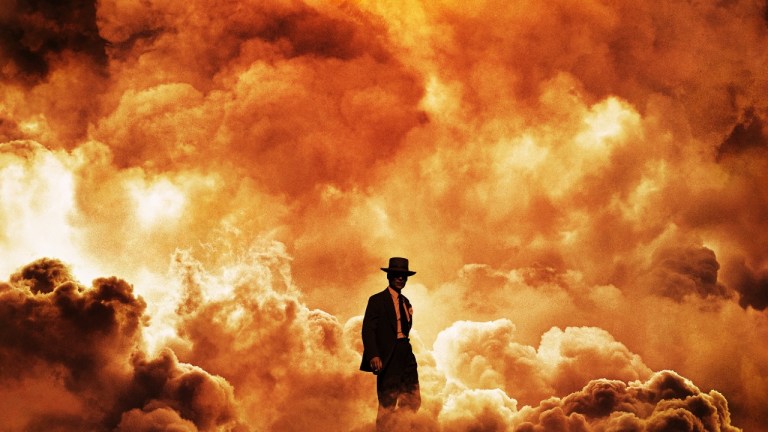There’s a Clear Reason Why Oppenheimer’s Dialogue Can Be So Hard to Hear
Christopher Nolan hears your complaints about the dialogue in Oppenheimer and offers an explanation to those willing to listen.

Most modern moviegoers consider Christopher Nolan to be one of the greatest directors of our generation. But that claim comes with a caveat about the treatment of dialogue in his films. Ever since Batman grumbled something about not wearing hockey pads in The Dark Knight, audiences have criticized Nolan’s sound design, with some complaining that he doesn’t know how to mix dialogue and others insisting that his approach is part of his cinematic vision.
While that debate hasn’t been quite as heated concerning his latest film Oppenheimer, certainly not compared to its predecessor Tenet, enough grumbles have filtered through that Nolan has decided to offer up an explanation for why you sometimes can’t hear or understand his character’s dialogue.
Speaking to Insider, Nolan pinned some of the blame on his favored technology, the heavy IMAX cameras he uses to shoot all of his films. In addition to being enormous, IMAX cameras are also incredibly loud, adding extra noise to a film set.
“There are certain mechanical improvements [a]nd actually, IMAX is building new cameras right now which are going to be even quieter,” Nolan enthused. But he’s most excited about the “breakthrough” in “software technology that allows you to filter out the camera noise.” With these advancements in place, Nolan hopes that he’ll be able to match the big-screen format with small-scale moments. “That [technology] has improved massively in the 15 or so years that I’ve been using these cameras. Which opens up for you to do more intimate scenes that you would not have been able to do in the past.”
Does this mean that the next Nolan movie will feature crystal clear dialogue and no one will complain ever again? Not likely, thanks to Nolan’s aversion to automated dialogue replacement (ADR), the common practice of having an actor dub their own performance with dialogue recorded in a sound booth instead of on set.
“I like to use the performance that was given in the moment rather than the actor revoice it later,” explained Nolan. “Which is an artistic choice that some people disagree with, and that’s their right.”
Of course, Nolan doesn’t always avoid ADR. The director famously re-dubbed dialogue in The Dark Knight Rises after the fan outcry to a preview of the movie. The preview showed the scene in which Tom Hardy’s Bane destroys a plane while capturing a scientist, and while the visuals left everyone in awe, the sound also left them frustrated. Hardy reportedly re-recorded his dialogue in ADR, so that his lines didn’t sound completely muffled behind the face mask.
But since then, Nolan has been more or less defiant about his refusal of traditional dialogue mixing. When Interstellar was met with the same critiques, the director took to The Hollywood Reporter to explain his decision… sort of. “We made carefully considered creative decisions,” Nolan insisted. “There are particular moments in this film where I decided to use dialogue as a sound effect, so sometimes it’s mixed slightly underneath the other sound effects or in the other sound effects to emphasize how loud the surrounding noise is.”
Even then Nolan acknowledged that this choice is “a little unconventional for a Hollywood movie.” But as Oppenheimer‘s continued box office success shows, the break from convention seems to be working, at least in his case.
Oppenheimer is in theaters now.

